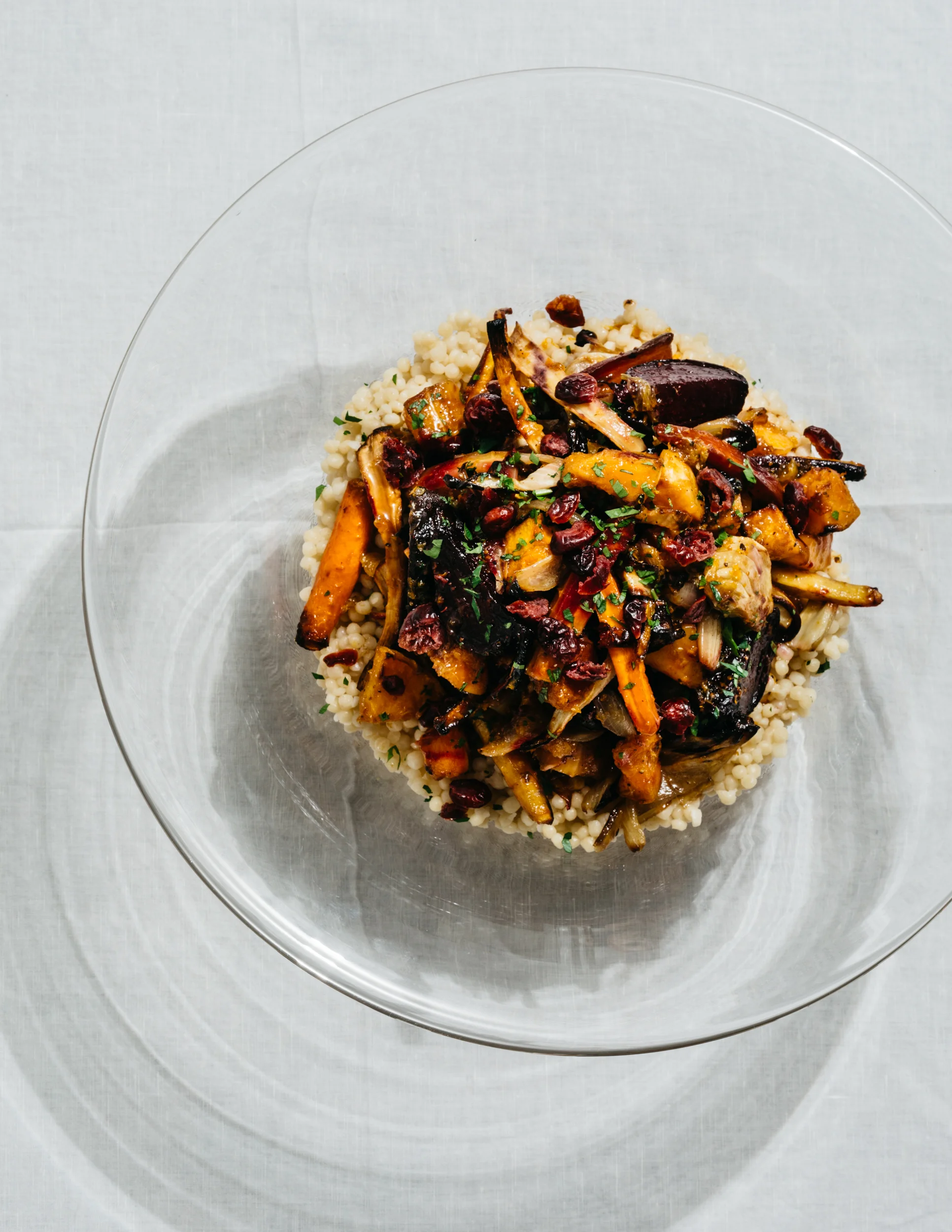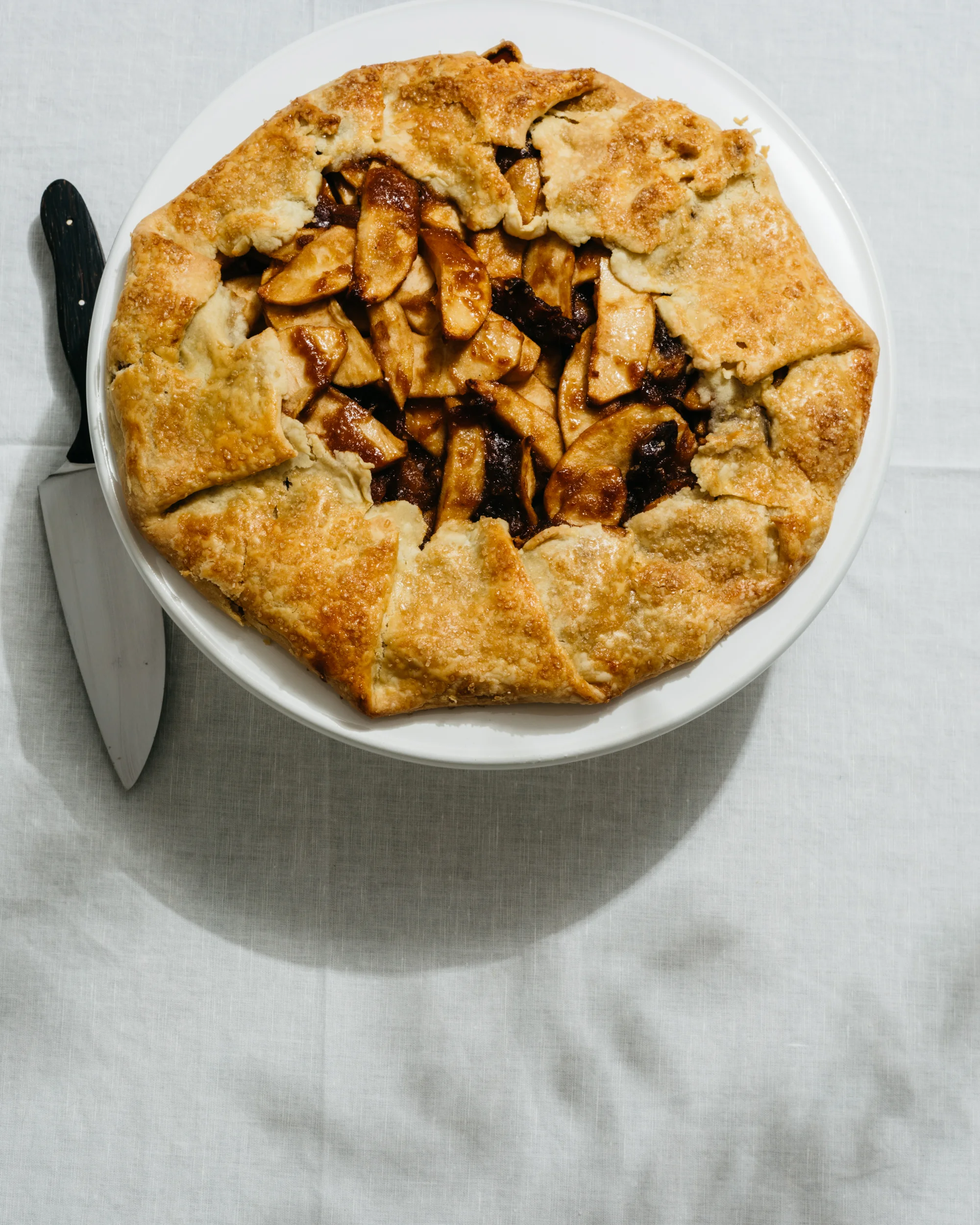Sukkot: A Made-for-New-England Jewish Harvest Holiday
Locally grown gourds, strings of Cape cranberries and colorful handmade paper chains will soon hang from leafy branches covering Boston area sukkahs. These small three-sided hut-like tents are the highlight of the Jewish holiday of Sukkot and are set up annually at homes, synagogues and, increasingly, in community spaces.
The joyful seven-day harvest festival on the Jewish calendar arrives this year in mid-October, when New England is in its autumnal glory, with orchards and farms boasting apples, pumpkins and end-of-the-season bounty. Sukkot follows Judaism’s holiest high holidays of Rosh Hashanah, the Jewish New Year, and Yom Kippur, the day of atonement, when Jews pray solemnly in synagogue and fast for 24 hours.
Sukkot dates back to biblical times, commemorating the story of the ancient Israelites’ 40 years wandering in the desert. Jewish tradition calls for eating meals in the sukkah (tent), recalling their transient, temporary dwellings.
Boston’s Growing Sukkah Scene
With its environmental themes, simple home-based rituals and tenets of welcoming guests, it’s no wonder that Jewish Bostonians are embracing the holiday. From suburban backyards and decks, postage-stamp-sized urban front yards, church yards and local community farms, sukkahs of all varieties and styles are popping up across the area.
Sukkot’s roots may be in ancient Israel, but many agree that Sukkot is the most “New England” of all Jewish holidays. “Sukkot in the Northeast is a natural,” says Leora Mallach, executive director and co-founder of Beantown Jewish Gardens, a Boston-based nonprofit that creates food and agricultural programs that draw on Jewish values.
“Many Jewish holidays and rituals harken back to agrarian times in ancient Israel. Today, people are removed from these agricultural roots,” Mallach says. In this region, “We are finishing up our harvest. It is a time of tremendous local abundance,” an opportunity for “the Jewish community to celebrate this abundance in our daily lives.”
The group hosts an annual Sukkot on the Farm, a program that draws some 300 people of all ages who build and decorate a sukkah. This year it’s being held at Codman Community Farms in Lincoln. There’s also the popular Farm to Sukkah evening, a sell-out social event for people in their 20s and 30s, who prepare and share a holiday dinner in the sukkah at Boston’s Temple Israel.
Elizabeth and Danny Navisky: Creating a New Family Tradition
The Naviskys’ Sukkot open house started humbly enough. Nine years ago, when the growing family had a preschooler and a newborn, they invited family, a few close friends and some neighbors to an informal potluck gathering in their first sukkah. About 40 people gathered that first year in the simple woodframed canvas sukkah Danny put up in their backyard.
It was a hit and fostered a sense of community that struck a chord for the Naviskys. Their now-annual Sukkot open house swelled to 160 people last year. “It became an easy and nice way to have all of our friends and neighbors over,” Elizabeth reflects.“” Many non-Jewish friends have become regulars, including their Japanese, Polish and Argentinian neighbors who sometimes bring foods from their own backgrounds. “We’ve had empanadas and pierogies,” notes Elizabeth, a food scholar and personal chef.
But year after year the hands-down favorite are the pans of flaky, delicious spinach fila (recipe linked at bottom of this article) prepared by Elsie Navisky, Danny’s mother. This popular dish is one she savors from her childhood, having grown up in a Jewish family in Cairo.
Arnee Winshall: Engaging Community
Arnee Winshall has been welcoming guests to her sukkah for some 24 years. Her list has grown to over 150 families; some of these guests first attended as kids and are now parents themselves.
While the open house is outwardly focused, it carries deep personal meaning for Winshall. The Weston resident, who grew up in Newton, is carrying on a tradition of her late mother, who invited people from all walks of life to their sukkah. Later in life, Winshall's mom gifted her the sukkah and Winshall took up the tradition of hosting an open house sukkah when her (now grown) children were school-age.
“For me, it channels my mom. It brings my mom back into our house,” she says. But Winshall, a philanthropist and longtime supporter of innovative Jewish education, is all about connection and community. “Every time I meet a new young family, I invite them to my sukkah party,” Winshall says.
Families make sukkah decorations at an arts and crafts table. She invites non-Jews as well, neighbors who have become regulars and, a few years ago, she invited a group of religious leaders from Nigeria who were visiting Boston. “So many Jews don’t experience a sukkah,” she noted. Now, people tell her that after attending her open house, their kids insist that they build their own sukkahs, she says.
Winshall makes sure there’s plenty of hot cider, cider doughnuts and platters of hummus and veggies.
Rosa Kramer Franck: Front Yard Urban Sukkah
Four years ago, the Kramer Franck family discovered that there’s nothing like an unexpected sukkah on a small front yard of a Jamaica Plain triple decker to attract Jewish and non-Jewish neighbors who are curious about the tiny pole-and-canvas tent in their busy urban neighborhood.
With two school-age kids, Rosa and her husband, Michael, thought it would be fun to have their own sukkah to enjoy family meals. After checking in with their neighbors, they bought the smallest sukkah kit they could find—but big enough for a table and some chairs, Rosa says.
To their surprise, neighbors they never knew stopped by, and sometimes have joined the family—everything from brunches to pizza and even a relaxing evening with a couple they didn’t know, sharing sangria and gazing at the moon through the branches of the open sukkah roof. “If not for the sukkah, we never would have had that moment,” Rosa reflected. “It’s wonderful for us and bringing us a connection with our neighbors.”
On the Table
Sukkot foods reflect the harvest, highlighting seasonal vegetables and fruits, says Jewish Beantown’s Mallach. Many Jewish sources cite a tradition of eating stuffed foods, associated with the idea of abundance: stuffed cabbage and kreplach (dumplings served in chicken soup) for Ashkenazi Jews of Eastern and Central European heritage, and stuffed grape leaves and eggplants for Sephardic Jews of Spanish and Portuguese heritage. Biblical foods like pomegranates are also served.
Land of Origin or Local Fare?
There’s an lively ongoing discussion among those active in the Jewish sustainable food and agriculture scene about whether Sukkot should feature foods associated with biblical Israel or a region’s local foods, Mallach says. Rabbi Becky Silverstein echoed that. For his part, the Jamaica Plain–based community rabbi is all about being local.
“Sukkot is about situating myself in the place I am,” says Silverstein, who for the last few years has put up a community sukkah in Jamaica Plain. Last year it was in a churchyard. Silverstein and his spouse transform their own porch on the second story of a two-family Jamaica Plain home into a sukkah, where they eat all their meals.
Dishing on Sukkot with Local Chefs
Chef Michael Leviton embraces the combination of local seasonal produce with foods and ingredients that reflect the holiday’s origins.
“I could see doing Sephardic-inspired stuffed eggplants and zucchinis or stuffed local baby pumpkins,” says Leviton, former chef-owner of award-winning restaurants Lumière and Area Four and cofounder with Tony Maws of Craigie Burger. A pilaf could feature pistachios and dates perhaps with Moroccan spicing, he suggests.
“What’s really interesting for me is this notion that we want to be true to our seasons,” Leviton says.
The eight-time James Beard Award finalist has fond memories of his childhood sukkah. Growing up in Newton, “it was fun to build and decorate and people would come over,” Leviton says. “It’s always nice to dine alfresco,” he adds.
Now, as a parent, his family has continued the tradition of having a sukkah at their home.
Sukkot menus often overlap with the traditional foods of Rosh Hashanah, says Rachel Sundet, pastry chef and co-owner of Mamaleh’s in Cambridge. Stunning round spirals of challah with raisins, honey cake and tsimmes, a stew with sweet potatoes and carrots, sweeten the Sukkot menu, she says.
Sundet and pastry chef Lauren Feldman created a delectable Apple Date Crostata for the delicatessen’s High Holidays catering menu (recipe linked at bottom of this article). Both grew up in Jewish families and enjoy preparing seasonal foods for the High Holidays, they say. Feldman spent time in her synagogue’s sukkah during Hebrew school.
“It reminded us that the seasons are changing and the New Year is coming,” Feldman recalls. “We’d talk about the harvest and all the opportunity for what is coming next.”





